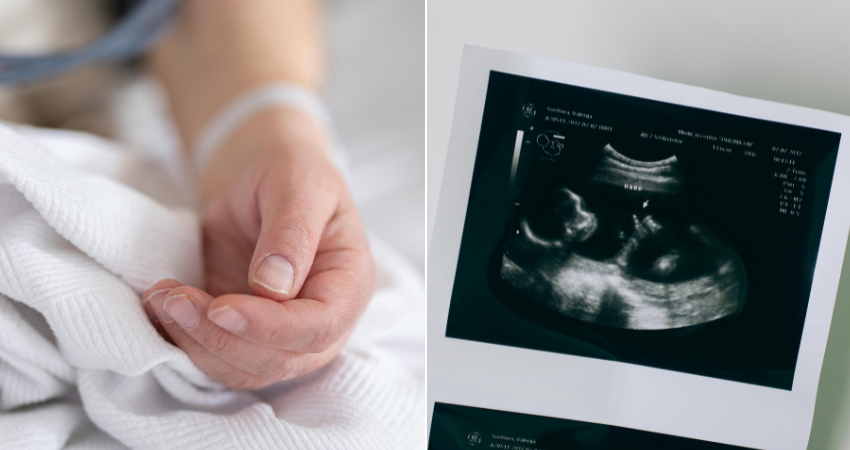
UK bill to require report on abortion complications passes second reading
Image credit: Engin Akyurt & Valeriia Svietlova via Pexels
A bill in the UK that would require an annual report of medical complications resulting from an abortion has passed the second reading and will now proceed to the Committee Stage.
According to Right to Life UK, the Complications from Abortion (Annual Report) Bill, proposed by Lord Moylan, seeks to change the law to ensure that the Department of Health and Social Care are required to publish an annual report on the medical complications that arise from an abortion procedure.
In the UK, the current form of recording abortion complications is done by the Abortion Notifications System (ANS) which is reliant on information from abortion providers. However, a Department of Health and Social Care review undertaken by the Office for Health Improvement and Disparities (OHID) which was published in November 2023, provided a more detailed report of abortion complications. It analysed data from the Hospital Episode Statistics (HES) over the period of 2017-2021 and compared the analysis with the reports from ANS. This review discovered that according to the ANS report, abortion complications averaged at 1.52 per 1,000 abortions during 2017-2021. However, the HES data found that abortion complications were 4.06 per 1,000 over the same period. This figure increased to 18.16 per 1,000 if incomplete abortions were included in the analysis. This is over 11.9 times higher than the ANS analysis.
Lord Moylan’s bill proposes that the annual report would be required to provide a similarly detailed analysis of abortion complications as in the November 2023 government review, and would also be required to include data from the HES.
During the debate on his bill, Lord Moylan discussed these statistics, explaining that the reason for this discrepancy is due to the current system failing to collect data after discharge of the patient. “Currently about 85% of abortions are medically induced, that is, by taking a sequence of pills”, he said.
The bill received support on the basis that it would provide more information about the risks and complications associated with abortion procedures, and without division, it passed the Second Reading last week, and will now proceed to Committee Stage
Speaking in support of the Bill, Lord Frost said: “I find it hard to see personally why we would not want as much information as we could possibly get on this question” since there is “clear evidence for at least a potential anomaly that needs addressing in the statistics. And it’s surely in the interests of any woman considering an abortion to have the best possible information about the possible risks involved”.
Catherin Robinson, the spokesperson for Right to Life UK said that the bill is “a much-needed step forward in improving transparency around abortion complications. It proposes a common-sense change to policy that MPs and Peers, regardless of where they stand on the issue of abortion, should support”.
“A Government review published last year revealed that abortion complication rates are likely much higher than has been previously reported in the annual abortion statistics, which are based on reporting from abortion providers,” she continued. “The new Government needs to urgently introduce measures to ensure that abortion complications data is accurately collected and reliably reported on”.
Back in 2021, the HSE confirmed that they were not collecting data on complications arising from abortion procedures happening across Ireland, yet Gript reported in that same year that up to 94 women were making claims against the state after experiencing adverse reactions from their abortions. In light of this, Life Institute launched the Abortion Inquiry initiative that seeks to gather information and personal experiences from abortion in Ireland. “The government may wish to keep women in the dark. We think they deserve better,” they said.
Sandra Parda of the Life Institute commented saying that “it is always a positive step when complications arising from abortion are taken more seriously. It is clear that there is a discrepancy between the complications according to the reported statistics in the UK to the actual number of complications, giving the false impression that the abortion procedure has fewer risks.”
“Women deserve better than this. Women deserve the truth and deserve to know that there are more risks to themselves when it comes to abortion, than the abortion industry would like us to believe.”
Featured
- Man jailed for 9 years for forced abortion
- Abortion coercion has arrived in Ireland – the NWC are silent
- Review of at-home abortions 'needed after coercion case'
- French Govt to remind 29-year-olds of biological clock
- Huge factor in decline in primary school numbers ignored
- Germany Denies Promoting Abortion Abroad—While Funding Pro-Abortion NGOs
- Govt don’t oppose Coppinger abortion bill at 1st stage
- March for Life: Vance, the White House, and a Divided Pro-Life Movement
- Paris’ Annual March for Life Puts Euthanasia in the Spotlight
- Britain’s seemingly limitless abortion rate
- The importance of the work carried out by Every Life Counts
- Puerto Rico officially recognizes unborn children as ‘natural persons’
- Assisted suicide laws stalled by “complex” legal issues
- Yes, that hideous celebration of 300 abortions is real
- White Crosses Memorial: Dungarvan once again pays its respects to our aborted babies
- Josiah: Abortion Survivor
- Rally for Life 2025
You can make a difference.
DONATE TODAY